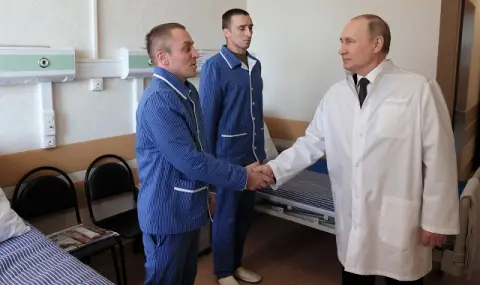Russia continues to face huge costs needed to sustain its military effort against Ukraine, as rising economic tensions, labor shortages and systemic corruption threaten the sustainability of Russia's military-industrial complex (VPC).
This is according to the Institute for the Study of War (ISW) daily analysis.
On December 7, US Defense Secretary Lloyd Austin announced that Russia had spent more than $200 billion. dollars for its war against Ukraine and has claimed at least 700,000 casualties as of February 2022. so far, with recent losses averaging 1,000 soldiers per day.
Ukraine's Center for Countering Disinformation reported on December 9 that Russia's liquid assets in its National Welfare Fund have decreased from 140 billion. dollars in February 2022. to 53.8 billion dollars as of December 1, 2024.
The center noted that Russia is increasingly relying on Chinese yuan reserves and gold sales to cover its budget deficit and is setting aside a third of its national budget for 2025-2027. for defense spending, which shows an unsustainable prioritization of war at the expense of economic stability.
On December 9, Russian Prosecutor General Igor Krasnov said that corruption crimes, including bribery, had increased by nearly 30% in 2024. compared to 2023, as in 2024 Russian authorities have disciplined more than 30,000 Russian officials for corruption violations.
Increasing economic pressures on Russia resulting from the war, combined with widespread corruption, manpower shortages, and the ineffectiveness of the Russian military, are likely to increase Russia's costs of the war and further undermine its ability to effectively support the work of the military its industry while maintaining economic stability.
ISW has previously noted similar trends and statistics about the Russian economy that show Russia's economic trajectory is unsustainable in the medium to long term and will increasingly strain its capacity to wage war against Ukraine.
Russian President Vladimir Putin continues to single out Russian officials who sponsor Russian volunteer units in Ukraine and the Time of Heroes program, which places veterans of the war in Ukraine in leadership positions in Russian federal and regional governments.
p>
Putin promoted Chechen Spetsnaz commander "Akhmat" Apti Alaudinov and Russian Deputy Defense Minister Yunus-Bek Yevkurov amid the Kremlin's continued efforts to shift the blame for Russia's inadequate response to the incursion of Ukrainian troops into Kursk Oblast onto local government officials and away from the military.
The Kremlin continues to cautiously signal that it can guarantee the security of Russian military bases in Syria in the short term, but expresses uncertainty about the long-term future of the military bases amid Syria's volatile and rapidly evolving political situation.
>
Russia moved some vessels from the port of Tartus to a nearby area in the open sea.
On December 9, the Syrian embassy in Moscow confirmed to the Kremlin news agency TASS that former Syrian President Bashar al-Assad is in Moscow.
